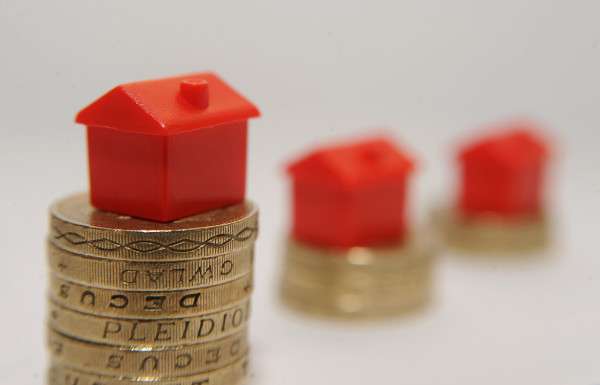

House price growth has continued to slow, according to the Nationwide house price index.
On a monthly basis, house prices fell by 0.1 per cent between July and August while on a yearly basis they grew by 2.1 per cent.
This was the second month in a row when Nationwide’s index measured slowing house price growth on a yearly and monthly basis.
The average house price during August was £210,495 – more than £1,000 cheaper than the month before.
Robert Gardner, Nationwide’s chief economist, said the slowdown in house price growth from the 4-5 per cent prevailing in 2016 is consistent with signs of cooling in the wider economy.
He said: “Nevertheless, in some respects the slowdown in the housing market is surprising, given the ongoing strength of the labour market.
“The economy created a healthy 125,000 jobs in the three months to June and the unemployment rate fell to 4.4 per cent – the lowest rate for over forty years. In addition, mortgage rates have remained close to all-time lows.
“It may be that mounting pressure on household finances is exerting a drag.
“Wages have been failing to keep up with the cost of living in recent months and consumer sentiment has weakened.”
He said there were particular pressures in London and the south east, where first-time buyer mortgage payments as a percentage of take-home pay are well above the UK average.
In London this is nearly 60 per cent – just shy of the 2007 peak.
But Mr Gardner said the lack of housing supply is likely to prevent price growth from falling far below its current levels.
He said: “The stock of homes on estate agents’ books remains close to 30-year lows and the number of new homes coming onto the market remains subdued.
“As a result, we continue to expect prices to rise by around 2 per cent over 2017 as a whole.”
One of the other issues Nationwide highlighted was that stamp duty revenues had reached all-time high levels of £12.8bn in the year to the second quarter of 2017.
The previous peak was in late 2007 when revenues reached £10.6bn despite residential property transactions being 30 per cent lower than a decade ago.
Mr Gardner said this was explained by higher house prices, which are now 12 per cent above their 2007 peak.
damian.fantato@ft.com



